#Media analysis
Explore tagged Tumblr posts
Text
A lot of people recently—as in, a weirdly high number of people—have been posting about how Solaris as a deity is a sympathetic figure, and how he was a victim in the grand narrative of Sonic ‘06.
This post is neither meant as a “gotcha” nor is it attempting to disprove or devalue this reading of the narrative, in fact I’m actually going to demonstrate how moral ambiguity is a theme that ‘06’s story definitely and intentionally explores, but I do want to just… point out what’s textually stated about Solaris in the game’s story.
To best illustrate what I’m getting at, I want to talk about Solaris chronologically. To do that, we need to discuss some deep lore that has come up on my blog several times in the past. (And no, it’s not the fact that the owner of the shops in Soleanna is named Enrique.)


Most people know that Solaris is represented by an eagle in Soleanna’s religion, but for those who missed the symbolism, Soleanna’s crest depicts an eagle standing proud with wings outstretched underneath a simplistic depiction of the sun, with the prominent feathers protruding outward in a manner reminiscent of sunbeams. Considering Solaris is known as Soleanna’s sun god and the eagle here is clearly represented as being a proxy for the sun (with the wing-sunbeams and all), and based on the fact Solaris’ physical form heavily resembles an eagle, it’s safe to say the eagle became a symbol in Soleanna due to worship of Solaris.

Additionally, the stained glass murals found in Kingdom Valley seem to show the eagle—Solaris—having some connection to or dominion over the day cycle, with the mural depicting this in a serene, positive light.
With that connection in mind, I would like to bring up the most insanely loaded and impactful throwaway NPC dialogue of any Sonic game:

Now, I’ve posted about this dialogue plenty before, but I wish to reiterate how this completely missable dialogue from some random woman in Soleanna’s New City contains deep lore that is heavily implied to be the origins of Soleanna’s symbol of their god, and may even be an origin story for Solaris’ worship in general.
The story is about Soleanna being overtaken by huge flames, until out of nowhere a huge eagle saves it. We know that Solaris’ physical form has the appearance of an eagle, so it’s barely conjectured to say that this story represents Solaris saving Soleanna—otherwise it would literally just be a narrative red herring. Additionally, the NPC specifically says that some people still believe the story to be factual, so this is clearly meant to be some manner of biblical non-fiction in the Solaris religion.
Clearly, this event sparked worship of Solaris, which, as previously mentioned, was viewed by the people of Soleanna as a positive deity—the “Eternal Sun,” which was paid homage to via the Festival of the Sun, which involved (description from the game’s official guide but this is also just what’s shown in the intro cutscene) “lighting a beautiful fountain of fire, bathing the city in the crackling glow of a thousand flames,” which I would say is representative of the great fires that overtook the ancient Soleanna, then afterwards “fireworks fill the sky, and there is much rejoicing by the general populace.” I would consider this as representing Solaris appearing from the call of the flames, but that’s conjecture—all that we need to focus on is what’s textually stated, which is that fact that there’s “much rejoicing by the general populace.” This is mirrored by the dialogue heard in-game, in which Elise, whilst lighting the fountain, prays: “Sun of Soleanna, guide and watch over us with your eternal light.”

The next event that we know of chronologically is, after somehow taking the form of a meager sentient flame, Solaris was entrusted to the royal family as the “Flame of Hope.” We don’t know how this happened, just that it did.
Later down the royal family lineage, we get to Elise’s father, the Duke of Soleanna. At some point, his wife—Elise’s mother—died, and conveniently the Duke then became infatuated with the altruistic idea of harnessing the power of time to allow his people to rectify past mistakes and avoid bitter fate. To that end, he started the Solaris Project, which aimed to study the Flame of Hope the royal family had been entrusted with and, more bluntly, manipulate the super-dimensional god-being Solaris for its power.
It is noted that the Living Flame had to grow larger for this power to be harnessed.

It is explicitly stated in-game that Solaris disagreed with this treatment. During the cutscene “The accident 10 years ago” which shows the Solaris Project experiment failing, a scientist notes that out of nowhere an electromagnetic pulse has been generated, which is causing a meltdown. The Duke responds to this by saying, “Why, Solaris? Why do you refuse to listen to my voice?” which suggests that Solaris itself generated the EMP, despite the fact that this causes it to fracture.
Furthermore, the game’s official guide (which should admittedly be taken with a few thousand grains of salt, as it’s a Prima Games guide and those are rather notorious) has this to say regarding Solaris and the experiment:

So, pretty cut and dry when you view it all like that in isolation, right? Solaris was a benevolent god that was abused by the duchy of its people and driven berserk from said abuse, which is why even after reforming its darkness and wrath it still sought to destroy all time. The Duke of Soleanna sucked bad and Sonic ‘06 is a narrative about… god dying for no reason? And the ending of Sonic ‘06 with Elise extinguishing Solaris represents, uhhh… deicide? Elise is perpetuating the cycle of abuse???
Obviously no hate to people who prefer viewing Solaris in a strictly sympathetic light (I literally wrote a fanfic with that as a partial premise), but you have to admit that it muddies the narrative. And, additionally, what a lot of people ignore when they come to that conclusion is the fact that Solaris had known malevolence.
First of all, consider the fact that the Flames of Disaster were a known thing in Soleanna’s faith—specifically known as Solaris’ wrath.


And when you remember the fact that Solaris takes the form of fire, and is known to be the being whose wrath is released in the form of flames,
Suddenly the story of the eagle has an alternative reading!
I am SO firmly in the camp that that NPC’s one-off dialogue is meant to suggest that Solaris manipulated its way into a position of worship, and that it being reduced to a meager flame was a saving act—which is why said flame was then entrusted to the royal family.
As stated above, this isn’t even an unheard of concept: Elise just casually tells Sonic about the potential of the Flames of Disaster, and all of Eggman’s actions throughout this game hinge on the fact that he wants to take the power of said flames (which he already knows about, just not how to channel) for himself.
Not to mention the fact that the component parts of Solaris don’t do the sun deity any favors. Iblis is literally a destructive manifestation of blind wrath, and Mephiles is a misery maximalist who literally overcomplicates plans to a fault just so the absolute most amount of karmic irony and sheer misfortune can underline all of his actions.
So… Solaris was vastly malevolent, ergo the Duke’s actions were completely justified, and Sonic ‘06’s narrative is about defeating ontological evil?
Also probably not!
A major theme of Sonic ‘06 is the dichotomy between the actions of an individual and the impact those actions have on the whole of society/the future—impact those actions hold in general:
Elise’s decision to sacrifice her relationship with Sonic by unmaking the instigating event of their meeting from the timeline, all to save the future, that’s just the underlining of this theme. There’s also the fact that Elise had to bear the Flames within her and repress her emotions in order to lead her people and hold back Solaris’ wrath, and the fact that Silver grapples with the idea that to save his future he has to personally kill an individual. Shadow has that whole moment where he says if the world chooses to become his enemy he’ll still fight like he always has, and even Amy gets the (admittedly pretty funny) line where if she had to choose between the world and Sonic, she’d choose Sonic—and for what it’s worth, that arguable ideology did plant the seeds of Silver questioning whether what he was doing was right or wrong. Even Blaze, who’s notoriously underutilized in ‘06, sacrifices herself to seal away the flames of Iblis for good.
I feel like the intended reading you’re supposed to have is that, yes, Solaris was terrible and did terrible things, but the Duke of Soleanna and contributors to the Solaris Project were also terrible and attempting to harness powers no mortals should possess, and both sides acted in manners that impacted the wider world in direct and indirect ways. It’s supposed to be a little difficult to work your head around and completely justify in one direction or the other—it’s trolly-problem-esque, in that sense.
So, in conclusion… all of this being said, there is still room to be made and interesting narratives to be constructed around the idea that Solaris was a victim—and personally I agree there’s some sympathy to be felt for the Flame and the experimentation it underwent even with its malevolence—but I feel like the actual narrative presented is much more intentionally nuanced.
119 notes
·
View notes
Text
You know what I think about a lot? Peeta never once intended to survive the games. In both the 74th and 75th his goal was to help Katniss survive it.
Even when they thought there could be two victers, he told Katniss not to go to the cornucopia for his medicine and had to be drugged so she could.
He never begrudged Haymitch for picking Katniss over him because he made the same choice. The only time he used it against Haymitch was to get him to make the same choice again.
#the hunger games#peeta mellark#hunger games#thg#character analysis#media analysis#book analysis#media commentary#my commentary#thg trilogy#the hunger games trilogy#catching fire#quater quell#thg peeta#books#literature#everlark#katniss everdeen#haymitch abernathy
122 notes
·
View notes
Text
You cannot add a romance to a story as an afterthought and expect it to read well. It can be a background thing going on, but there needs to be something happening in the background. If there is no lead up, no connection, no bonding moments then the relationship will seem shallow and unremarkable even if the characters personalities play off of each other well.
Let me also state that everything I said previously has nothing to do with shipping, people are crazy and if there is not lead up, they will create it themselves. (I’m people)
Also I have no greater resentment than of media creators who make these grand stories and get angry when the audience ships the male main character with another male character.
I know it also stems from homophobia, but if they wanted the audience to connect with the relationship between the well done male main character and the 1 dimensional sexy obstacle girl then do the fucking work!
You spent pages on pages (or episodes) building this connection between the main character and his friend, dying for each other, saving each other, saying crazy ass emotional shit to each other. And honestly I get that you want to write a platonic bond sometimes and you are allowed to do that but shipping has always been a driving force in fandom, if you make that relationship important in the story and more interesting that anything that’s canon, then the audience is going to reject those parts of your story.
And let me say, it is not enough to write a 3 dimensional interesting girl character. You have to make the relationship she has with the protagonist interesting as well.
This post is about a variety of stories I’ve read but I’ll tag a couple that bother me. Also this is not to say i dont ship the gay ships. This is moreso a “callout” to creators (who aren’t on this app and I’m not really pissy about it) and the way they are so lazy about writing het ships and then have the gall to get pissy about the fandoms making everything “yaoi”
#invincible#boku no hero academia#bkdk#invader zim#zadr#all shounen anime ever#Naruto#supernatural#media analysis
86 notes
·
View notes
Text
Literary analysis for podcasts: my top tips
Recently some of my analysis posts have been getting notes again and it made me think that maybe I can share some advice with those of you who are interested in writing about similar things but feel hesitant to! I'm by no means an expert but I love writing and reading media analysis, and I'm sure some of you do too. This is primarily for social media and blogging, but some of it applies to academia too!
1. Know your media
This one's pretty obvious, but useful! Definitely write notes of your thoughts the first time you listen to a podcast, but if you're able to listen multiple times you can gain insight into what piques your interest again, and also what you missed the first time/s that other people might've missed too.
2. Know your audience
Engaging with the community of said media can add even more depth and interest to your writing and theories. Look at what people are already putting out there: what are their headcanons? What's controversial? What is nobody saying? There's always something new to be found, even if you're exploring a really popular aspect of the story.
3. Write for yourself
In my experience this is the most important thing. Even if you tailor your writing in a way you think will suit everyone, somebody will still disagree with you, so it's better to write what you think and feel (in a respectful and conciontious way) than to try and make everyone like it. There's always hate, but there's also always appreciators!
4. Don't undervalue transcripts
For some reason when I first started analyzing podcast content I was really against looking in the transcripts? I'm sure you're not, but either way make sure to read them if you can, there's often extra tidbits of information in them, and they can help you understand!
5. Sometimes how it was said can be even more interesting than the sentence itself
It can be so interesting to look into a voice actors choice; podcasts present the unique challenge of an audio only word, so phrasing can really make a difference and be interesting to analyse. It's also interesting to compare notable lines to the speech pattern an actor or character usually uses.
6. Sounds effects and audio design can be just as interesting as storylines
This is something really specific to audio dramas, as again they rely only on sound. I think it's easy to underestimate the difference that the sound design can make, but as it's something everyone interprets differently I find it a really juicy topic for analysis.
7. Have a look at the producer/creator's other work
This can be another really cool topic for analysis if you're interested in the maker themself! It can uncover common links in their work, introduce you to new media, and give you new perspectives on the media you started with! Also, as all of you creators will know, there's a chance they reused cut parts of your favourite podcast in another they made...
8. Be self indulgent...
I kind of already said this but I can't say it enough... Write about what you love, share your brainrot, share the weird little things you think (as long as they're appropriate to...). Just share your joy and it'll probably make other people happy too!
Hopefully some of this will be helpful! It's not all podcast specific, but it all certainly applies. And remember, if you think this is all really obvious, you may not be the target audience, but you can share it with someone who might be! And also, as always, please feel free to add your own tips in the tags!
#Podcasts#Podcast#tma#the magnus archives#malevolent#malevolent podcast#wtnv#welcome to night vale#tmagp#Analysis#media analysis#english literature#I can't think of anymore tags but I feel like there should be more... Oh well...
23 notes
·
View notes
Text
The Summer Hikaru Died hit me wayyy harder than I was expecting. I'm not that good at putting things into words, but its depiction of growing up queer in a rural community felt so real.
Yoshiki is repressed, stifled by the community he grew up in. He wants so badly to leave, to go to the big city, to finally be free of all the nosiness that comes from living in a small town. In some panels, the sounds of the cicadas are written in every possible blank space, giving a suffocating feeling.
Something I haven't seen people talk about yet (though I'm sure it exists) is all the discussion about Yoshiki becoming "mixed up" by spending time with 'Hikaru.' At the end of chapter 4, Rie tells Yoshiki to put some distance between himself and 'Hikaru' before he becomes mixed up. And obviously, she's talking in the sense of the supernatural, but it reminded me somewhat of my own experiences. In middle school I was friends with someone that was heavily rumored, but not confirmed to be a lesbian (she was, but closeted.) My parents told me to keep my distance from her, because they didn't want me getting "involved in the wrong crowd" or "influenced."
Just as my only refuge from growing up this way was my small group of closeted queer friends who shared my struggles, Yoshiki was safe with Hikaru. Except now, Hikaru is gone, replaced by a mimic that uses his body and retained his memories. He's gone, but he's not gone.
In TSHD, queerness and the supernatural are intertwined. Just as 'Hikaru' must hide what he truly is, Yoshiki must as well. Just as 'Hikaru' is a monster, Yoshiki views himself as a monster because of his upbringing. Getting involved with the supernatural is dangerous, just as how being openly queer in a homophobic area is dangerous. Both are things that people fear, that must be hidden in order to stay safe.
Anyway this is long and rambly but I just needed to share. I obviously knew that TSHD had topics of both horror and queerness before reading, but I didn't expect it to affect me as much as it did.
#the summer hikaru died#hikaru ga shinda natsu#tshd#hgsn#media analysis#i guess#long post#frii has spoken
22 notes
·
View notes
Text
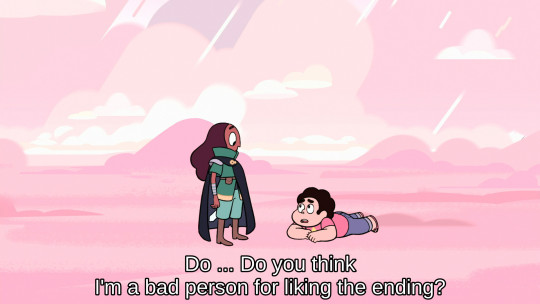
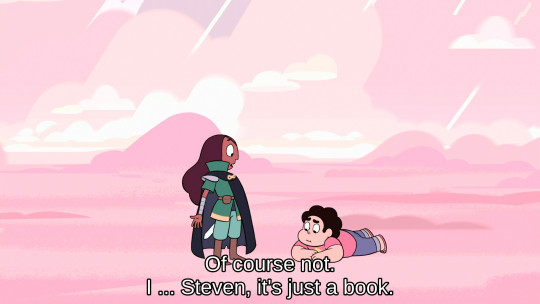
discourse.jpg
69K notes
·
View notes
Text
Whether Chelsea was being truthful or not has nothing to do with the unfortunate implications of showing that an entire species is inherently evil.
In the beginning we are told that all mermaids are conniving and untrustworthy and natural enemies of the krakens, we meet a mermaid who seems to challenge this idea but then the "twist" is that she was lying all along and confirms that indeed, all mermaids are evil and untrustworthy. And again, confirming prejudice isn't a good look.
On the topic of Ruby Gillman Teenage Kraken...
All the people saying it would have made more sense for her to be the mermaid queen's daughter are missing the point that the movie is about Ruby and the relationships/trust she has with adult women in her life.
Her mom broke her trust, but has good intentions for ruby. It's a common thing for parents to do, and mom would need to be more truthful in order to restore the trust, but she wants Ruby to live a good life.
She recently met her grand mama so has neutral trust with her, and while grand mama would like for ruby to take over being a warrior queen, she takes a more neutral stance in letting ruby come to her for training (she learned from previous parenting mistakes). Yes she is confident Ruby will return and that seems a bit conceited, but overall she is neutral. Yes she has a vision for Ruby, but she isn't forcing anything and is willing to give Ruby information that her mother hid.
Chelsea has Ruby's trust, but this trust is based on the lie of being Ruby's peer, and she has bad intentions. People are correct to call her a groomer.
If Ruby's mom was more forthcoming with info, Ruby may have been more willing to talk to her about the plan she and Chelsea came up with. Ruby may have known her grand mama sooner. The info about Chelsea may have been found out faster if this was the case. But it's because her mom broke her trust and she only recently met grand mama that she was able to be groomed like that.
Also you all saying that the movie validates grand mama being racist to a marginalized group need to stop taking Chelsea's sob story about the mermaids seriously because she is a liar who was just likely lying. Like we get that "info" while she is in the middle of manipulating Ruby so why are you taking it as the truth??? The story paralleled Ruby's life to invoke sympathy. "I was hiding in the ocean just like how you were hiding on land. Then I escaped hiding to land just like how you escaped to the ocean." This is the part that let me figure out who she actually was, that "Chelsea" wasn't real, and that she was just grooming, so I don't understand how so many people think she is being truthful.
183 notes
·
View notes
Text
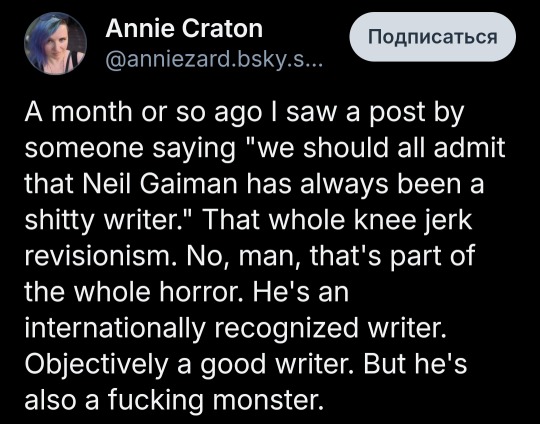
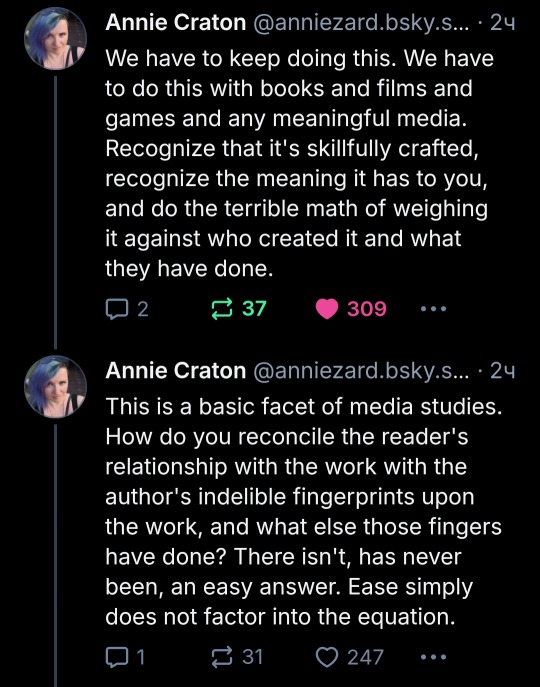
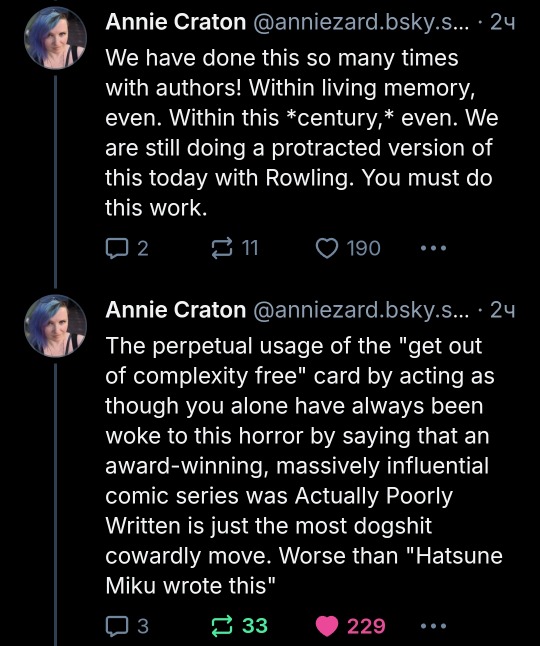
#she's right and she should say it#literature#comics#neil gaiman#neil gaiman allegations#good omens#the sandman#bluesky screenshot#media analysis#separating the art from the artist
46K notes
·
View notes
Text
⚠️ Sunrise On The Reaping spoilers ⚠️
...
The way Haymitch was reaped adds another layer to a scene in the Catching Fire movie.
In the movie, we see Katniss stepping in between the peacekeeper and Gale as being the moment Snow decides to put past victors- therefore Katniss- in the quarter quell.
In SOTR, Haymitch is made a tribute in replacement of Woodbine because he stepped in between a peacekeeper and Lenore Dove.
#sotr spoilers#sotr#catching fire#haymitch abernathy#katniss everdeen#media analysis#media commentary#my commentary#my analysis#character parallels#character analysis#books#movies#sunrise on the reaping#thg catching fire#the hunger games#hunger games#thg#thg sotr#thg movies#katniss and haymitch#parallelism#parallels
56 notes
·
View notes
Text
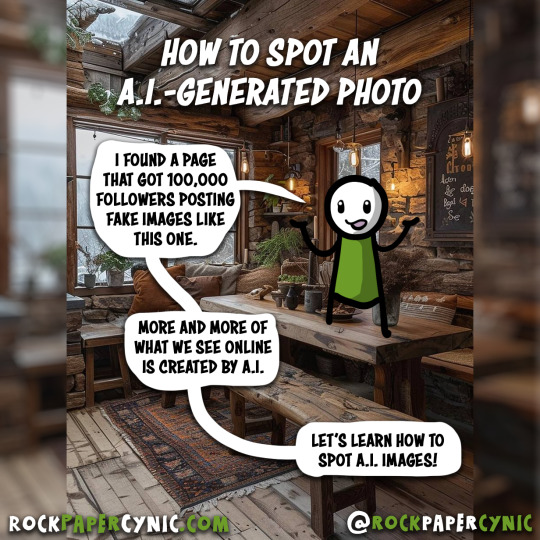

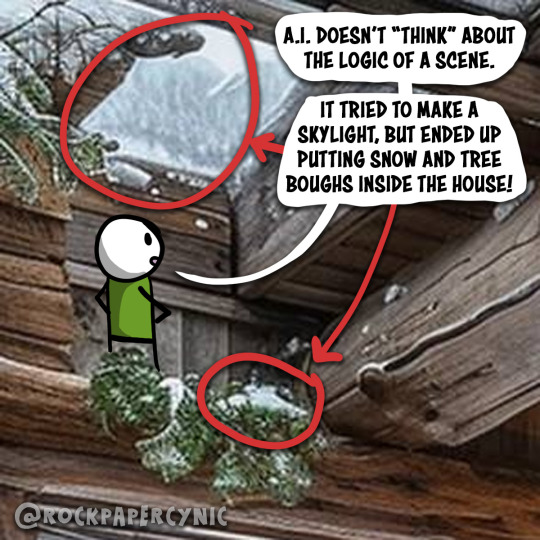
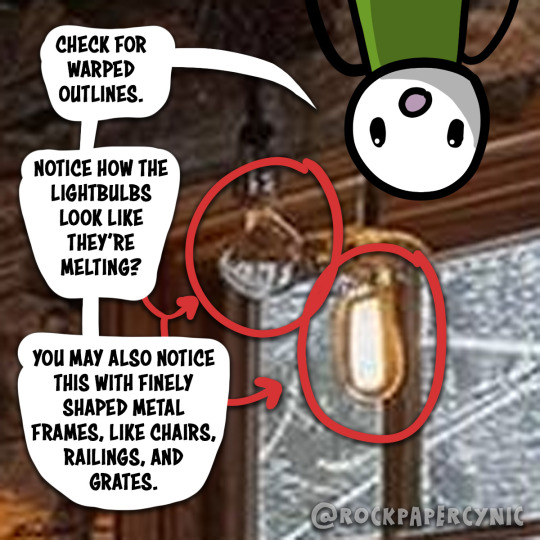
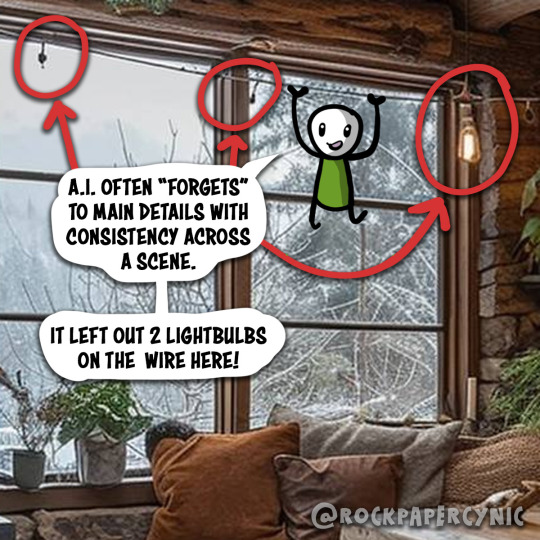
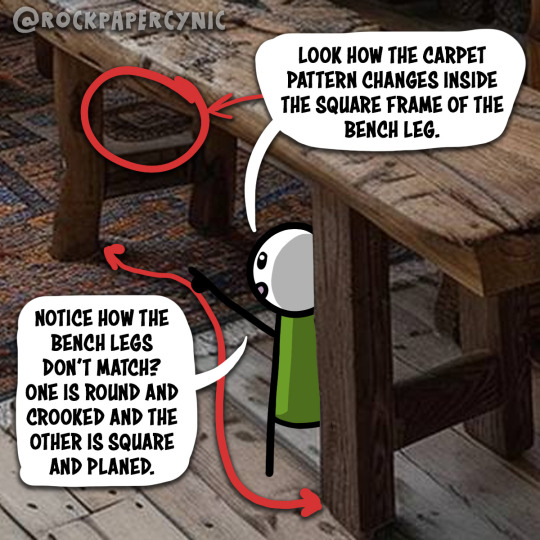

A.I. photos are flooding social media and contributing to an Internet where we can't believe what we see. Spotting A.I. 📷s is an important media literacy skill.
None of us have time to research every image we see. We just need people to notice BEFORE THEY LIKE OR SHARE that an image might be fake. If unsure, check it or don't share.
I've started drawing some comics explaining the basic of AI spot-checking and media literacy in the age of disinformation. Follow along here or on my Twitter.
34K notes
·
View notes
Text
I'm 100% not disputing Maddy Thorson's claim that she didn't figure out she was trans until after she'd finished working on Celeste (DLC excluded), and the greater part of the game works at least as well as an allegory for living with mental illness as it does an allegory for gender transition. However, that specific repeated motif where Badeline keeps insisting – condescendingly at first, then with increasing desperation – that Madeline is "not a mountain climber", as though "being a mountain climber" is some sort of fundamental identity... well, I'd love to know where Thorson thought she was going with that part at the time that she wrote it, if it wasn't intended to be a gender thing.
5K notes
·
View notes
Text
I wanna talk about some vitally important symbolism in Kendrick’s performance this evening.
Follow me.
Kendrick had an entirely Black dance cast for this performance, all dressed in red, white, blue, and some in black. But, I specifically want to focus on this arrangement, at the beginning of the show.

The dancers create the appearance of an American flag. A flag, the symbol of American history and heritage, formed out of Black bodies.
The legacy of America is that of the state that was built on the work of Black bodies. Enslaved Black bodies.
But it’s deeper than that.
Kendrick puts himself at the center of the flag. Now, yeah, part of it is performance; it looks better with your performer surrounded by the “supporting cast,” so to speak. But, with Kendrick, it’s never that simple.
Kendrick centers himself, imo, to demonstrate that he is functionally America. His experiences, his life, is America. He grew up poor, urban, the son of working parents. He was nearly led astray as a youth, but turned to art and philosophy and dedicating himself to his craft, and found both fulfillment and success. In the popular myth of the American dream, that’s the ultimate goal.
And he never once did it by selling his soul to capital (again, in the ‘mythos of Kendrick Lamar’). He never betrayed his culture, or took the quick money, or let his art be co-opted by the vultures that feed on Black culture for mass (white) consumption.
Again, this is just a quick and dirty analysis by one person who only developed an appreciation for hip-hop recently. For deeper, more informed analysis, seek and study the Black academics who know far, far more than me.
7K notes
·
View notes
Text

Something you need to remember is that journalistic photographers are still artists at heart. When you are providing a source of information that is to be seen as "the truth" you are going to frame things to look a certain way.
You will publish the ones that look like what you want. The framing of Luigi Mangione's transportation is incredibly evocative of paintings of Jesus being arrested. It also (not so) coincidentally is often the framing of a hero being captured for the greater good.
This is ON PURPOSE. Do not discredit the artist by calling it a mistake. This was on purpose. The artist supports him and is framing him as a hero.
No matter how much corporate news may attempt to drown out the support for Mangione, artists always have the ear of the people. A picture is worth a thousand words, isn't it?
#politics#political#luigi mangione#current events#fuck ceos#anarchist#anarchism#anarchocommunism#anarchopunk#anarcho communism#all art is political#artists on tumblr#media analysis#social commentary#my commentary#opinion#analysis
4K notes
·
View notes
Text
the thing i love about good visual media is the SHOW. most people can write, but SHOWING SUBTEXT THROUGH ACTIONS is also important.
and you know what? telling can be hard too! even if a show WRITES well, and spells it out, sometimes it can feel like you are being spoon fed the information. but when characters have a natural progression with realistic dialogue- that’s good shit right there.
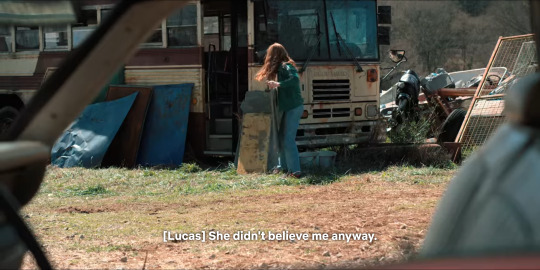
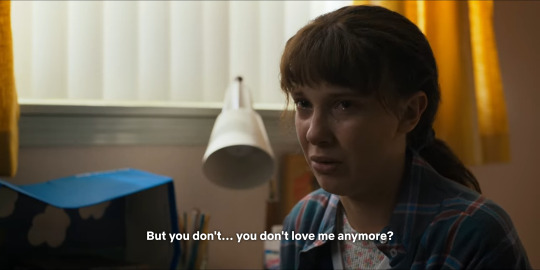
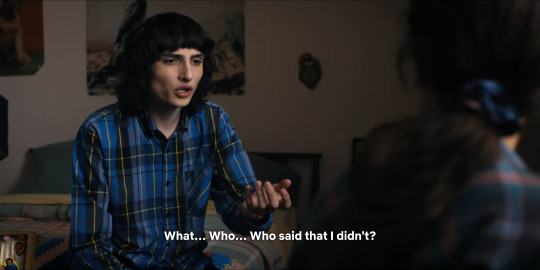
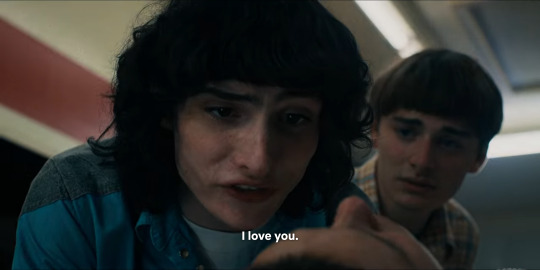

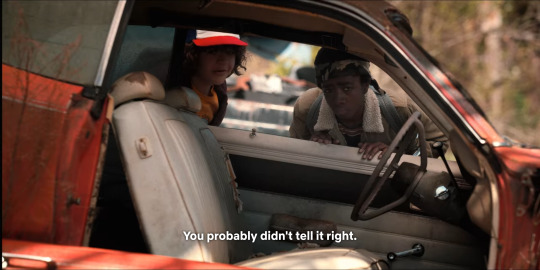
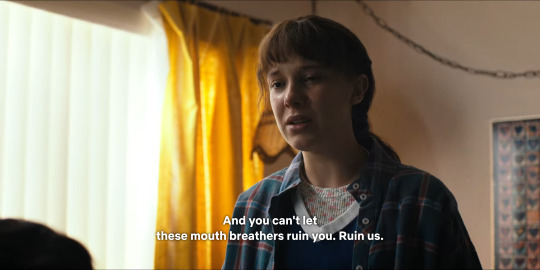
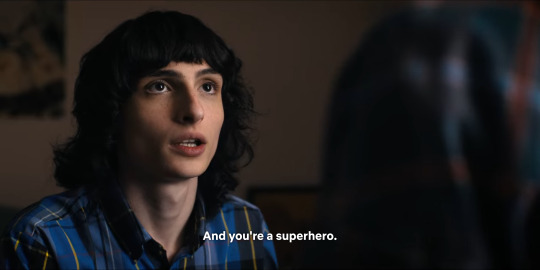

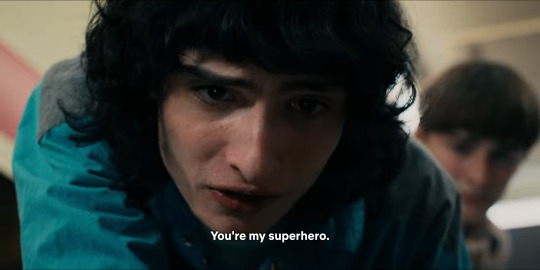

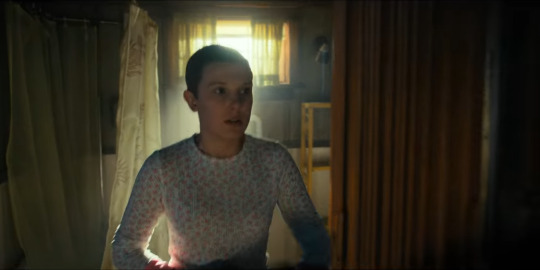

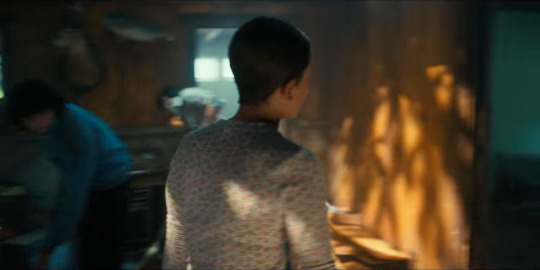
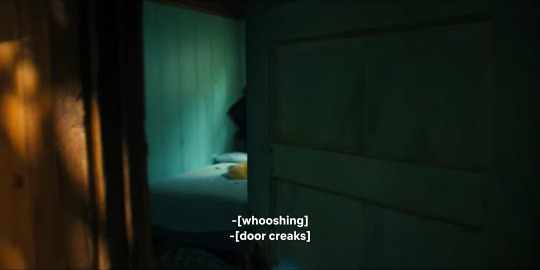
but what do we know about show vs tell?




and anyway, lucas did end up "telling it right" (while mike couldn't)

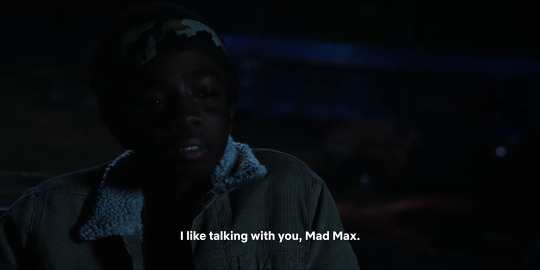

79 notes
·
View notes
Text

[IMAGE ID: The American Chopper Argument Meme that reads: "Deadpool 3 wasn't a good movie because the anchor being concept didn't make sense and neither did the cameos, it was supposed to be about deadpool." In the second panel, "Anchor beings are a commentary on Marvel's fucked up money-making scheme and destroying characters who are popular to the audience which puts more money in their pockets." The third panel states, "The cameos still shouldn't have been there! They made no sense!" Followed by, "Deadpool wanted to be a hero since the first Deadpool movie and continues to be rejected over and over and you think it's not important for him to meet people who were rejected by the industry and forgotten? To not only make a jab at big industries but also for himself and his repeating themes?" / END ID]
Guys, I might be passionate about this movie, I don't think it's noticeable./s
#fox speaks#deadpool and wolverine#deadpool#wolverine#wade wilson#logan howlett#poolverine#deadclaws#wolverpool#deadpool movie#deadpool 3 spoilers#media analysis#image described
7K notes
·
View notes